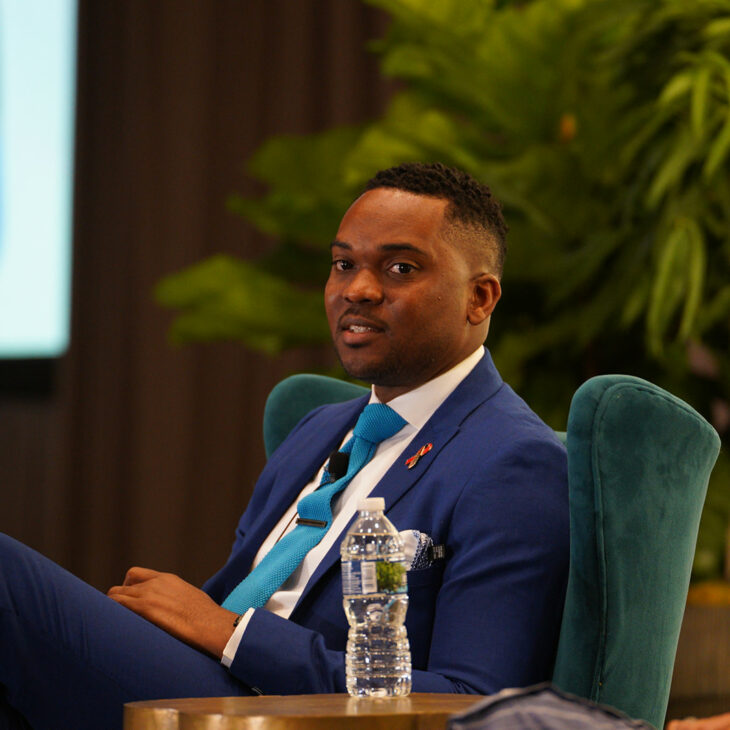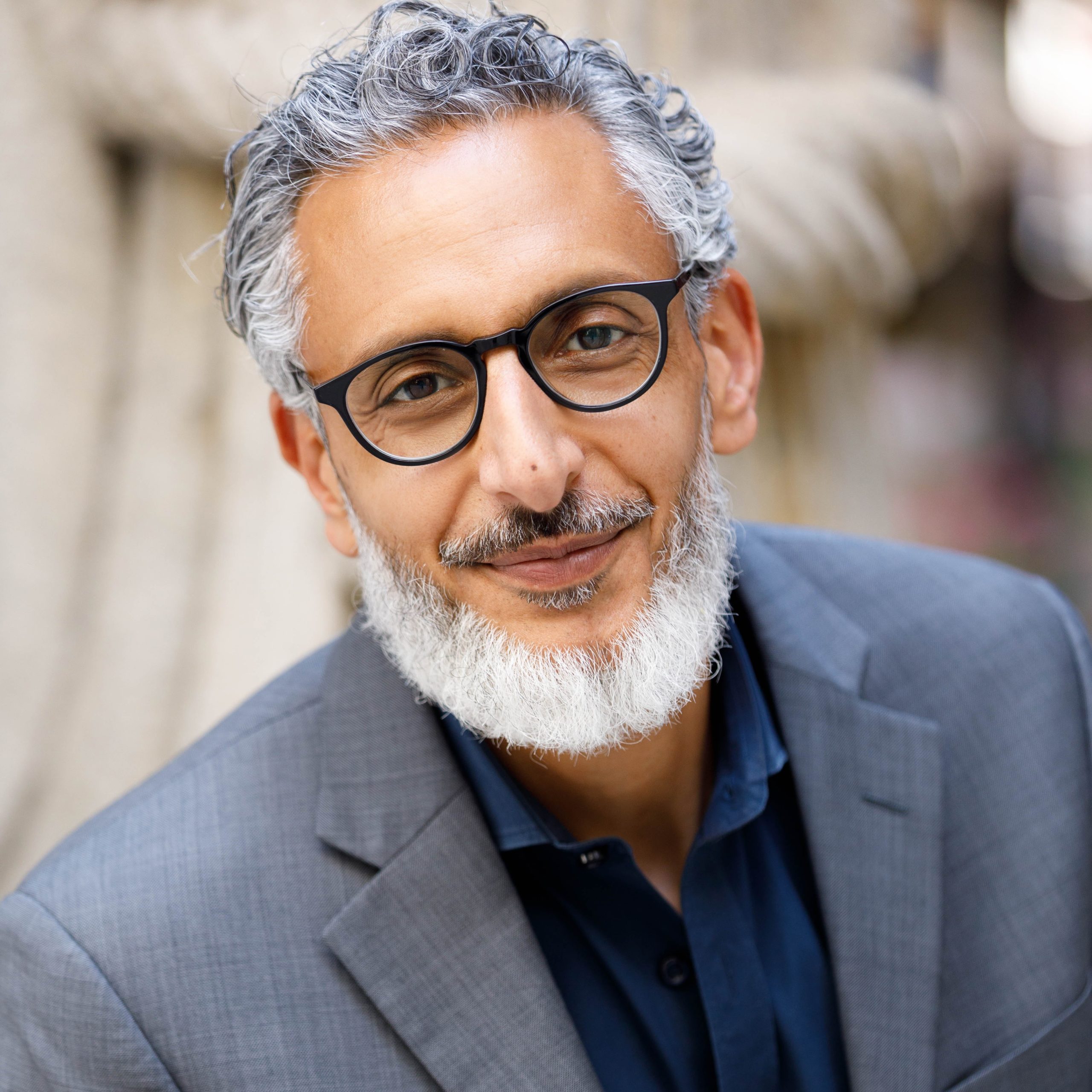Running Thread: Thoughtful and Soulful Guides in Understanding Religious Diversity
September 2, 2022

Recently, we had the honor of naming seven new Senior Columnists for Interfaith America Magazine.
This insightful group of thinkers and writers each engage religion in American public life through particular approaches and vocations. Among them are the ordained, the scholarly, a community organizer, and a physician. Think of what happens when you approach American religious diversity from the disciplines of political science and the law, sociology and epidemiology, social entrepreneurship, and the perspectives of a Black rabbi and a white evangelical pastor. You don’t have to be a religion geek (a favored Interfaith America term of endearment to be sure) to get excited about what this group will produce.
Their work will at times extricate thorny questions and engage complicated terrain, while also highlighting inspiring stories of interfaith leadership in local communities and congregations. As such, these seven illustrate just how central American religious diversity is to our civic life – manifesting in their own lives, scholarship, and work in manifold ways. Their own bios and backgrounds are collected here – and six recently published articles are illustrative of what we have in store for us.
At a time of rampant either-or, tribalistic posturing, noted legal scholar Asma Uddin begins her first article as a Senior Columnist by recognizing that both the majority and the dissenting opinions in Carson v. Makin raise weighty points for us to consider. Carson deals with a question emerging out of Maine, as to whether that state is justified in providing public funds to cover private schooling for rural residents who do not otherwise have access to public schools. Maine had been providing such funds solely to those attending nonreligious private schools, which led to a challenge calling for the availability of public funds for religiously based private schools as well. Without taking a clear side, Uddin’s analysis enriches our understanding of the complexities involved here. The case draws out a distinction between status-based and use-based discrimination, regarding non-establishment as grounded in the First Amendment.
The court ruled 6-3 that Maine must also extend such funds to religiously based schools, an opinion that Uddin assesses as a helpful aid to minority religious communities. In her words, for such communities “that are struggling to expand resources for their adherents, this type of financial support can be critical.” She also grants that, as we should expect in a religiously diverse democracy, it raises other questions around inclusion – and “may be discriminatory against religious and other minorities.”
There are no easy answers. But what we do have in Uddin is an adept guide as we seek to understand the ever-evolving relationship of the state and religious communities.
Pastor Bob Roberts Jr., humanist scholar Juhem Navarro-Rivera, Jeff Pinzino, Dr. Ulysses W. Burley III, and Rabbi Sandra Lawson, each in their own ways, are also adept guides. Pastor Bob, as he is affectionately known, speaks with a thick Texas accent and writes of being a committed pastor in a community in which there is rampant “antisemitism, racism, seditious conspiracy and the encouragement of religiously-motivated violence.” He takes up the challenge head on, seeking grassroots community-based engagement while also being a force in global interfaith peacemaking. Navarro-Rivera disentangles fascinating nuances within the Latino community as they relate to religious affiliation and partisanship, largely missed by broader political discourse that has noted a general trend of Latinos moving to the Republican party. Dr. Burley, himself a physician, situates the HIV/AIDS epidemic as not merely epidemiological or scientific, but profoundly theological. That rootedness opens to the dire need for religiously diverse communities to provide healing and anti-stigmatization. For his part, Pinzino does what community organizers often do best – shine a spotlight on an unsung hero. In this case, Syda Taylor, a Baha’i social entrepreneur and founder of Organic Oneness. Taylor works across lines of religious difference to improve local communities.
Finally, Rabbi Lawson goes right to the heart of an abiding human concern: what happens to our souls when we die? She does this through the loving and beautiful stories of her friend Richard and her mother, both of whom died of cancer. She grounds this in her tradition’s official prayer book, the Kol Haneshama, and its affirmation that “Much of our experience of divine goodness, grace and love has come to us through those whose lives have touched our own.” In reading that, I was immediately reminded of a Baha’i teaching Syda Taylor claims as central to her work: “We belong to an organic unit and when one part of the organism suffers, the rest of the body will feel its consequence.” (Shogi Effendi, Lights of Guidance).
Taken in combination, these rich reflections leave me carrying two hopes for myself and our communities. May our richly diverse traditions provide the blessings Rabbi Lawson and Dr. Burley urge and keep us ever-mindful of the interconnectedness Taylor places at the center of her work. And may the scholars and thinkers among us, like Uddin and Navarro-Rivera, help us face the complexity and reality that dot our civic landscape. In other words, religious diversity is both inspiring and complex. As we often say at Interfaith America, diversity is not just the differences you like.
Share
Related Articles
American Civic Life
American Civic Life
American Civic Life

Tony Banout
Raised in an immigrant household in New York, where he was steeped in the Coptic Orthodox Church and absorbed both Roman Catholic and Islamic influences, Tony describes the American experiment of e pluribus unum as his lifelong vocation, which he has approached civically, academically, professionally, and artistically. Tony contributes regularly to the national conversation about the role of interfaith cooperation in a religiously diverse democracy, often touching on philanthropy and higher education. He holds a PhD from the University of Chicago, where he studied at the Divinity School and was a Martin Marty Center and Provost fellow. Tony is a proud father of three to Lucas, Nina and Leo. In his spare time he enjoys both making and listening to music.



